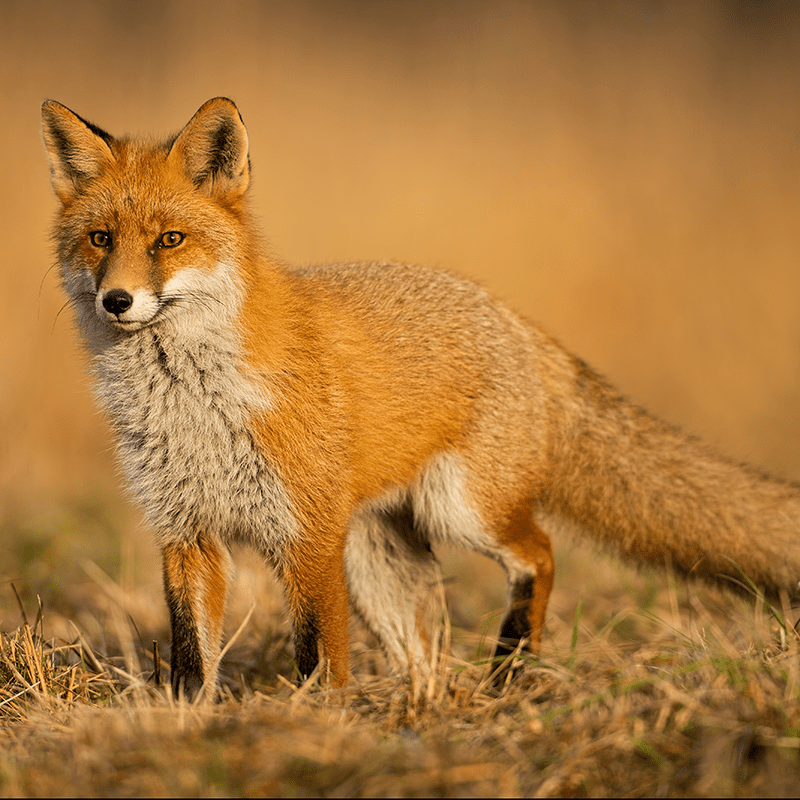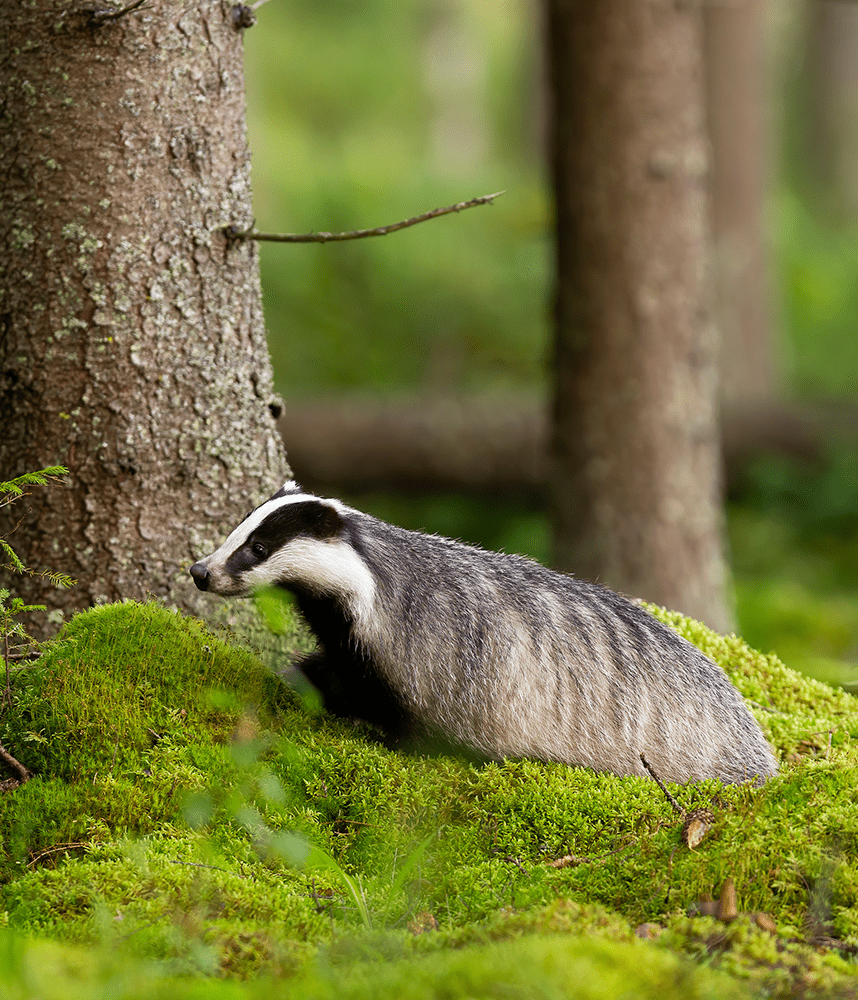The
British Carnivore Project
Since 2021, my team and I have been running the British Carnivore Project, an on-going programme aiming to understand the impact of environmental changes, such as climate and urbanisation, on the behaviour and cognition of wild carnivores in the UK, and how this, in turn, shapes people’s relationship with these animals and nature more broadly.









Overview:
THE BRITISH CARNIVORE PROJECT
BCP is a nationwide programme that centres around research, education, and knowledge exchange. Our goal is to understand the impact of environmental changes, such as climate and urbanisation, on the behaviour and cognition of wild carnivores in the UK, and how this, in turn, shapes people’s relationship with these animals and nature more broadly.
Our primary study species include red foxes (Vulpes vulpes) and European badgers (Meles meles) from over 300 urban and rural locations throughout England, Scotland and Wales, and pine martens (Martes martes) throughout the Scottish Highlands.
The work of BCP is made possible through grants from the UKRI’s Natural Environment Research Council, the Wild Animal Initiative, the University of Hull, and the EU Social Plus Fund. Our core team includes a network of scientists and students from the Universities of Hull and Lincoln, with external collaborations with other universities, including the Universities of Stirling, Edinburgh, and Glasgow. Since 2021, BCP has provided educational opportunities to 5 PhD students, 8 MSc students, over 50 BSc students, and 3 research assistants.
In addition to research and education, BCP engages in a wide range of knowledge exchange activities with external stakeholders, which includes members of the public and staff from major British organisations such as The Wildlife Trusts, The Land Trust, Forestry England, Forestry & Land Scotland, and the National Trust.
Because of our activities, BCP was nominated in 2023 for three Knowledge Exchange Awards at the University of Hull and is set to become an impact case study for the 2029 Research Excellence Framework (an impact evaluation of British Higher Education Institutions). In 2024, one of our PhD students (K. Adaway) became one of the first nominees of the prestigious ‘Mammal Champion Award’ given by The Mammal Society in recognition for going above and beyond for British carnivores.
Why British carnivores?
British carnivores, like other animals throughout the world, possess a wide range of adaptations to their environment. Foxes, for example, have evolved relatively large brains and are one of the most widely distributed carnivorans on the planet. European badgers, by contrast, live in the same areas as foxes throughout Europe and parts of Asia, but have relatively smaller brains and are not as adaptable in terms of their geographic distribution. British carnivores also have an interesting relationship with people: On the one hand, studies show they are among the most beloved mammals in the UK, making them an important “gateway” to people’s connection to nature more broadly. On the other hand, they have a long and complex history of being persecuted as “pests”. Thus, comparisons between British carnivores provide an opportunity to study the relationships between animal psychology, behavioural adaptability, and human’s connection to nature in the same geographic location. Such research can be applied to a wider global context using ecological modelling, public engagement, and policy change to promote well-being and coexistence between wildlife and people.
impact of our work
In just a few short years since the establishment of BCP, our work is already helping to address important environmental issues by allowing us to actively engage in public policy, practice, and communication. Here are a few examples:
Foxes and snares: In 2023, we submitted evidence to the Scottish government in support of the Wildlife Management and Muirburn Bill. The bill was passed in 2024 and implemented a nationwide ban on the use of snares to control wildlife populations. Foxes are often the intended target of snares as a form of pest control. BCP was part of a larger public consultation of stakeholders, the majority of whom supported the bill. In our letter to support the bill, we provided some of the first objective data to evaluate the problem-solving abilities of British red foxes living in the wild (OUTPUT HERE), arguing that the Scottish government already affords better welfare protection to other species with similar psychological capabilities. We also provided the most up-to-date published data on public attitudes towards foxes within the country, showing that most British residents have more positive, rather than negative, feelings towards these animals, with fewer than 6% of Scottish residents (<9% across UK) saying that it is acceptable to harm or kill foxes (OUTPUT HERE). Given these latter findings, we argued that banning the use of inhumane snares in Scotland (to improve the well-being of foxes) would likely be largely supported by the general public at that point in time.
Badgers and bovine tuberculosis: The link between badgers and the spread of bovine tuberculosis (bTB) remains highly controversial. Culls administered within the UK to reduce transmission have led to reports of local extinction events, raising serious concerns among conservationists over the current and future state of British badger populations. In 2023, BCP was asked to aid the UK’s Badger Trust in developing protocols for their ‘State of the Badger’ programme, which aims to provide up-to-date data on the population health of badgers in England and Wales by monitoring changing trends in badger population and welfare every five to ten years (SEE HERE). BCP also contributed knowledge and data on badger behaviour and cognition for the Badger Trust’s most recent stakeholder report on effective solutions to tackle the bTB problem (SEE HERE), where we emphasised that government policies surrounding the badger cull are inhumane and a breach of UK laws that exist to protect all vertebrate animals (as sentient beings) from needless persecution.
Raising public awareness: An important goal of BCP is to help generate greater public awareness of important environmental issues, particularly the impact of human activities on wild carnivore behaviour and cognition. Our recent work, for example, on the impact of urbanisation on bold and innovative behaviour in wild British foxes received major global media coverage from over 410 television, radio, and newspaper outlets, including National Geographic, BBC, The Times, The Guardian, ITV, and Sky News. According to the press office at the University of Hull, our work reached over 28 million people within the UK and beyond. Some of our work has also been highlighted on BBC’s Winterwatch television series, which is a BAFTA award-winning programme viewed by millions of people (WATCH HERE).
Applied merits of our research:
Scientific research is at the forefront of BCP because it can be used to shape environmental policies and practices in a myriad of ways. Here are a few examples from our most recent research outputs:
The impact of urbanisation on human-carnivore coexistence: In a recent study, now published in the journal Animal Behaviour (OUTPUT HERE), we were the first team of scientists to objectively test on a large geographic scale whether urbanisation is making wild red foxes bolder and more innovative due to the challenges they face from ‘life in the city’, and how this might be impacting human-fox coexistence within British cities. One source of conflict we were particularly interested in exploring was the popular belief that urban foxes are prolific bin raiders, since this is often associated with negative public attitudes and tolerance towards these animals.
Our study found that urban foxes were indeed more likely to behave bolder than rural populations in terms of their willingness to physically touch the puzzles. However, aside from perhaps specific populations included in our study (e.g., London), most urban foxes were not more motivated to try to gain access to the rewards inside. When we left food on the ground without any puzzle, all foxes – regardless of location – willingly ate the free food.
The lack of persistence from most foxes, even for puzzles containing large rewards (90 dog biscuits), contradicts the notion that urban foxes (in general) regularly exploit another type of puzzle that humans leave out – household waste bins. While of course some foxes do indeed raid bins, our experimental study is consistent with findings from other published studies on fox diet, direct observations of urban foxes, and household surveys, all of which indicate that the notion of foxes as prolific bin raiders is not typical of the species. Instead, other factors beyond boldness may lead some foxes to rummage through bins, such as when containers have no lids or when they lack barriers to block access, which we are investigating in follow-up studies.
We believe our findings illustrate the importance of having objective data to guide public perceptions about a species as their portrayal within popular culture may not always be rooted in reality. In terms of what this all means for human-fox coexistence, foxes are one of the most widespread carnivores on the planet, and so as global urbanisation continues, it is crucial that people understand how to avoid conflict with these animals. Within the UK, for example, foxes are a beloved and ecologically important part of urban green spaces, and therefore represent an important “flagship” for human-nature relationships within our cities. Public attitudes and conflict could change, however, if foxes continue to become bolder, and so future management needs to balance both positive and negative human-fox interactions within neighbourhoods so that both can coexist. By simply disposing of our waste properly, for example, we can try to discourage many foxes from hanging around our bins.
We were recently invited to write a piece for The Conversation, where we elaborated on these points in further detail (SEE HERE). To watch videos of some of the foxes that interacted with our puzzle feeders, CLICK HERE.
Does communicating scientific information bias public attitudes towards foxes? For many people, foxes are now a familiar sight in their back garden or out on the street. Because of their prevalence, there has recently been a lot of discussion about foxes within popular culture, with many people claiming that foxes are becoming bolder and more of a nuisance within cities – even riding on buses, stealing shoes, or taking naps on people’s garden furniture.
Our paper from 2023 was the first study to objectively show that foxes within the UK are indeed behaving bolder within cities compared to rural populations. Thus, as we devote more land to building homes, it is crucial that we understand how to avoid conflict with these animals. This requires sharing information about foxes to explore positive ways to coexist.
Stories and imagery play a huge role in shaping our attitudes about things, and so an important first step to finding solutions for human-fox coexistence is to understand how information about ‘bolder urban foxes’ should be communicated to the general public so that it does not undermine important conservation initiatives, particularly factors relating to preserving the welfare of urban foxes.
We put this to the test for the very first time by investigating whether messages about ‘bolder urban foxes’ are biasing how people feel about them. To do this, a total of 1,364 members of the public were randomly selected across Great Britain to take part in an online experiment administered by our team. Participants were not told what the study was about. Half were given stories depicting bold and cunning fox behaviour, such as this video here, which shows foxes exploring and solving food puzzles that the scientists left overnight in people’s back gardens.
As a control for comparison, the remaining participants were given relatively neutral content, such as this video here, which shows foxes travelling through different landscapes. Afterwards, all participants completed the same 24-item questionnaire evaluating their perceptions of foxes, including questions on whether they felt fox behaviour negatively impacted their everyday lives.
Our study, now published in the prestigious journal Biological Conservation (OUTPUT HERE), showed that 83% of people still had positive feelings about foxes despite a very long and complicated history of fox persecution within the country. Participants remained positive despite being made aware that bold and intelligent behaviour from foxes likely explains their ‘pesky’ interactions with people.
These findings are important because they illustrate that the likeability factor of foxes is deeply rooted and difficult to change just by discussing their nuisance behaviour. In other words, although foxes are often perceived to be bold and crafty, most people seem to love them anyway. We believe this to be significant because it means that we can have important conversations on how to find solutions to manage coexistence without persecuting these animals, such as how to dispose of our waste properly to deter bin-raiding behaviour. This, in our view, is great news for foxes and people.
Check out a piece we wrote for The Conversation, where we elaborate further on these main points (SEE HERE).
![Badger_logo_design_vector_template [Converted]](https://www.blakemorton.co.uk/wp-content/uploads/2022/10/Badger_logo_design_vector_template-Converted-1-300x55.png)